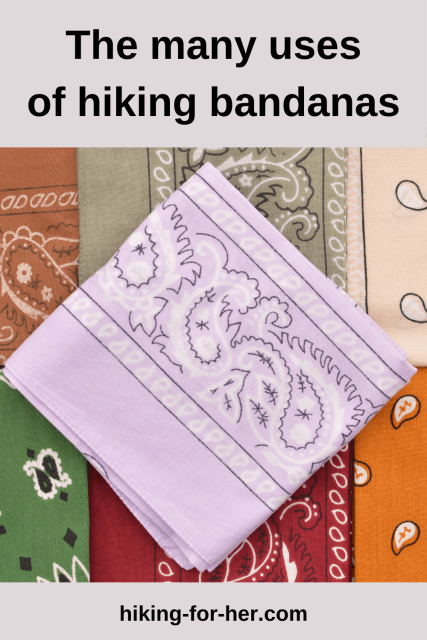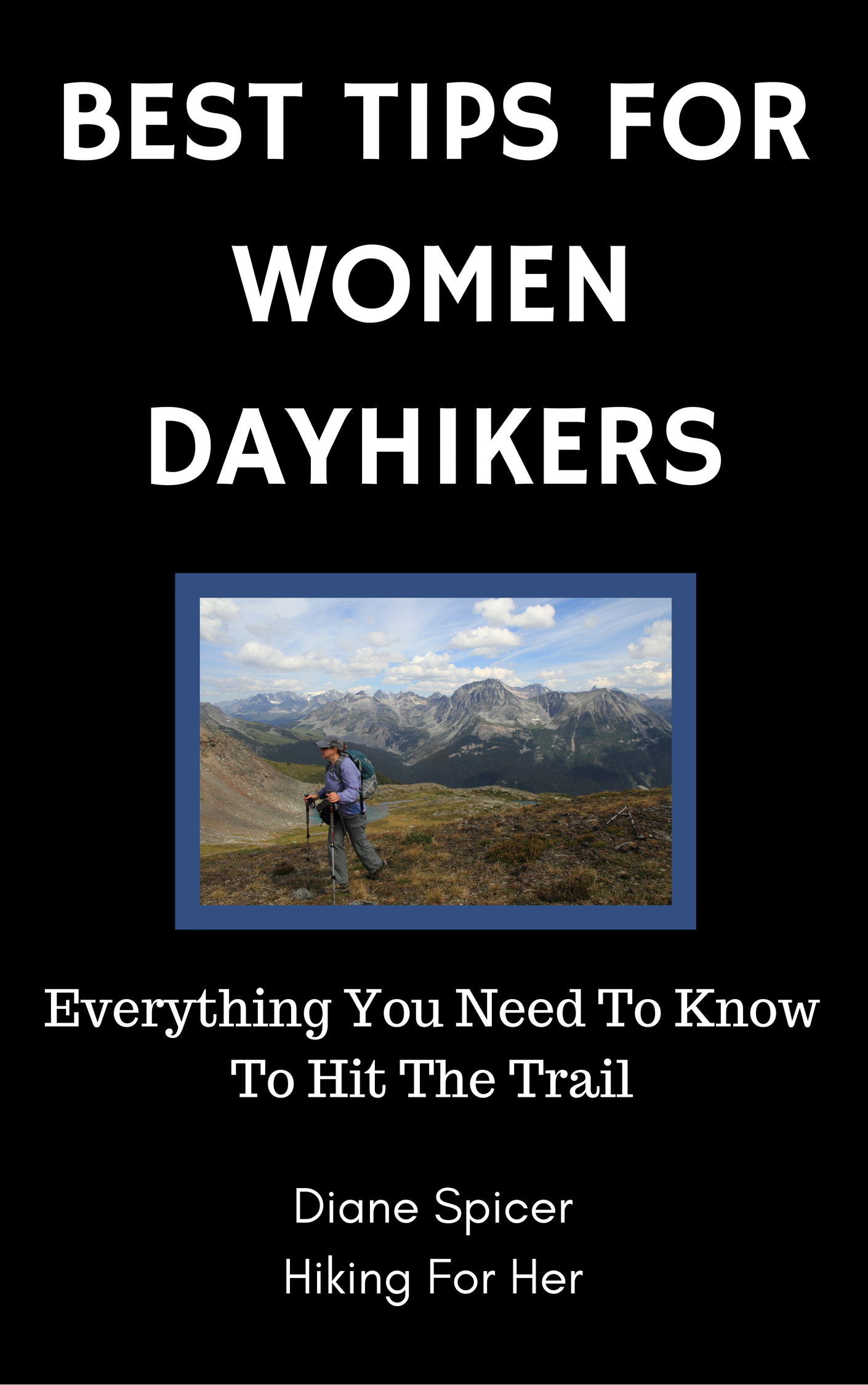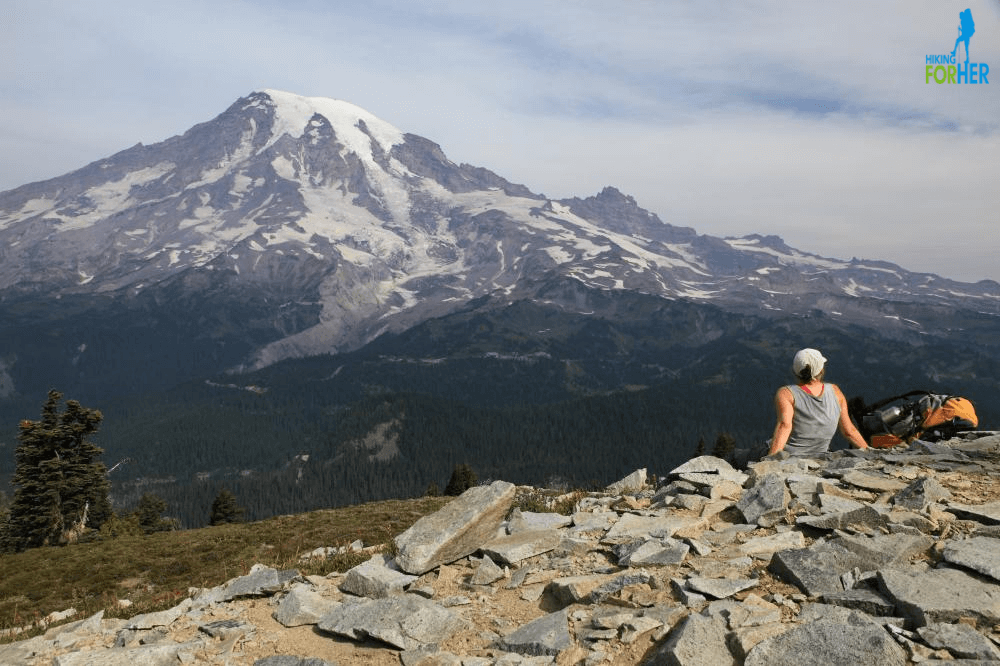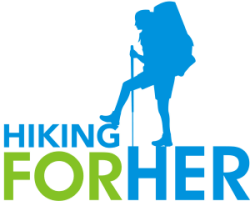
Best Hiking Bandannas:
So Many Uses On The Trail
By Diane Spicer
Hiking bandannas have branched out quite a bit since my early hiking days.
- I recall wearing 2 basic colors back in the "dark ages": blue and classic red.
A recent stroll through the aisles of a sporting goods store gave me a rude shock: tie-dyed bandannas!
Not only that, but every hue imaginable of the classic bandanna pattern spilled into a mind-bending display, so many that I ended up buying a basic gray one because I couldn't commit to just one color.
I like the simple life, can you tell?
A note about spelling: one "n" or 2?
Either are accepted. Let's use both!
Favorite uses for hiking bandannas -
what are yours?
So what have I used my hiking bandannas for?
I think a better question would be, what haven't I used it for?
Here's a short list...
1. Air conditioning: Soak the bandanna in water, shove it under your hat - Voila! a cool breeze on your neck with every step.
2. Bug screen: Again, some assembly required (the classic "shove it under the hat" maneuver).
3. Emergency sanitary napkin: Fill it with dry moss & lichens, roll it into a somewhat pad shape, attach it to your underwear via 2 safety pins from your emergency kit.
4. Fly swatter: all rolled up and ready to flick the little nasties. Works even better when the bandanna is wet.
5. Wash cloth: At the end of a dusty trail, wash your face & body before crawling into your sleeping bag.
6. Extra padding: Have a not-so-great-fitting belt or strap on your pack? Whip out your bandanna and make some adjustments.
7. Eye patch: I once used my bandanna to create a "pirate patch" look for a fellow backpacker who developed a stye on his eyelid. He felt more comfortable with a cool compress over his eye each evening when we reached our camp spot.
- Warning: Styes are contagious, so handle the bandanna carefully and pay attention to hygiene. You don't want an eye infection when you're miles and miles away from a doctor's office.
8. Hot pad: Grab that pot handle using the bandanna as hand protection because you know you can wash it out and hang it dry by morning.
9. Signal flag: "I'm over HERE!!" [On 2nd thought,
maybe my gray bandanna won't be of much help any more, now that I've
retired my bright yellow one.]
10. Bad hair day coverage: Enough said.
11. First aid tool: Mopping up blood. Please don't ask...
12. Sweat mopper: I knot my bandanna around my neck on particularly hot days so I can use the 2 dangling ends to wipe away sweat from my eyes.
- If sunscreen drips from my forehead into my eyes, my eyes burn, so I pre-emptively remove the sweat with the bandanna. Works great!
13. Water pre-filter: get the big gunk out by putting a clean bandanna over your water bottle before you fill it. This saves wear and tear on your filter. But always use good water hygiene techniques like these.
Check it out!!
I don't know about you, but I always stop and examine the bandannas when I'm in a hiking gear store.
It's fun to speculate about which colors "match" the seasons or destinations of my hiking plans.
And I've given them as "old school" gifts to my trail buddies.
- I use them to wrap up a great selection of trail snacks, first aid items, and hiking field guides. These thoughtful gifts always receive an enthusiastic welcome because I personalize them to the receiver.
Here's a great selection to work with!
- Be sure to keep a few for yourself :)
From the "old hiker learns new trick" department
Recently, I was given the opportunity to enlarge my world view concerning bandannas.
Here's what happened.
I received an email from the Hoo-Rag company, asking if I'd like to try their product.
Immediately I was overwhelmed with curiosity concerning what such a company might be selling. In my mind, Hoo is linked to doo, conjuring up a particular geological formation of bizarre columns of weathered rock.
I was fairly confident that couldn't be right.
After due diligence, I had identified two key facts:
1. You can spell the word that means "a piece of colored cloth worn around your head or neck" with one "n" or two, and be within the boundaries of correct spelling.
2. A Hoo-rag is a piece of polyester microfiber cloth designed to give traditional cotton hiking bandannas a run for their money.
Now I had a dilemma on my hands (or neck).
I'm a "mature" hiker, and a traditional one. I grew up wearing old school cotton bandannas with a particular print, and I have so many fond memories of these little squares of cloth (along with the pictures).
Would I be disloyal to my hiking bandannas if I tried one of these new and improved, high octane models touted as "the better bandana"??
Only one way to find out: Wear a Hoo-rag on a few hiking adventures, compare it with my decades of experience with the cotton variety, and post my results here.
And here they be!
Impressive versatility
with hiking bandannas
I was impressed with how versatile this little piece of cloth was, too.
- I used it to wipe off my glasses when moisture condensed on the
lenses (again, from the deep breaths).
- I made use of it at our lunch
breaks to wipe spilled tea from the front of my jacket (YOU try
unscrewing the lid of a thermos with gloves on!!).
- And I tied up my hair with it on the drive home, to keep it off my sweaty face.
Hiking bandannas have
gone upscale!
What I love about this bandanna:
It kept my neck warm and dry during strenuous uphill hiking in the fall, and really strenuous snowshoeing in 20 - 30F calm, dry conditions. I did not miss my usual fleece scarf one bit! In fact, the H-rag provided superior ventilation.
During the
spring and summer months, I used it to insulate my neck during chilly
mornings until the sun had a chance to reach me on the trail.
I liked the subtle brown & yellow sunflower print - not too flashy, not too fashionista (although you can definitely stand out from the crowd if you so choose, given their wide variety of color and pattern choices).
I also noticed that the fabric near my mouth did a great job of wicking away the moisture which always accumulates during the deep breathing required to get me up to a viewpoint.
- In the Cascade Mountains
here in Washington State, that can be a few thousand vertical feet on
any given day!
- So I definitely enjoyed avoiding the "cold, wet chin" syndrome.
Cautions
Having heaped all of that praise upon this little piece of fabric, let me also note that if the wind had been blowing, or wet snow falling, I would have switched it out for fleece.
I don't know for a fact yet whether it would keep my vulnerable areas (neck and lower face) warm at lower temps or wilder conditions.
I have a hunch that its thermal capacity would max out at some point, leaving me with a cold neck and the potential for a downward slide into hypothermia.
One more little thing: if you're a "mature" hiker, too, the advertising copy on the website may be just a tad off-putting.
- I don't
need to be "super hip" or attract male attention (unless I've just face
planted in a tree well and need rescuing).
- And the military and snow
boarding stuff is distracting in terms of looking for useful hiking
bandannas.
- Maybe they'll add a "hiker" section, along with the other categories.
But I think you'll have fun choosing just the right color and pattern to express your unique hiking personality.
And get this!
They even have a traditional hiking bandanna print!!
Maybe even a picky, traditional female hiker like me can be trendy AND comfortable on the trail.
And if you want to stay "found", this particular version is just right: Hoorag's High Viz Orange Bandana
Another option:
Buff
What's your opinion of
hiking bandanas?
Let me know if you have an opinion on this "tradition versus innovation" hiking bandannas (or bandanas, if you prefer) topic.
- Use this CONTACT link.
It's always great to hear from a variety of hikers, and I love to pass along what I learn from you!
More hiking clothing tips coming right up!
Home page > Best Hiking Gear >
Hiking Bandannas
|
I get emails all the time about what I wear, eat, carry and love to use on the trail. That's
why I provide affiliate links to you: the best gear that I use myself and have seen used by other hikers is instantly
available for your consideration, and the gear company sends a few
pennies per dollar to this reader-supported hiking website. There is no added cost to you! Everyone ends up a winner: Great gear for you, strong gear companies, and more free hiking tips for everyone. Thanks very much for your support. It's warmly and sincerely appreciated. It also helps send these hiking tips to all your virtual trail buddies around the globe. |
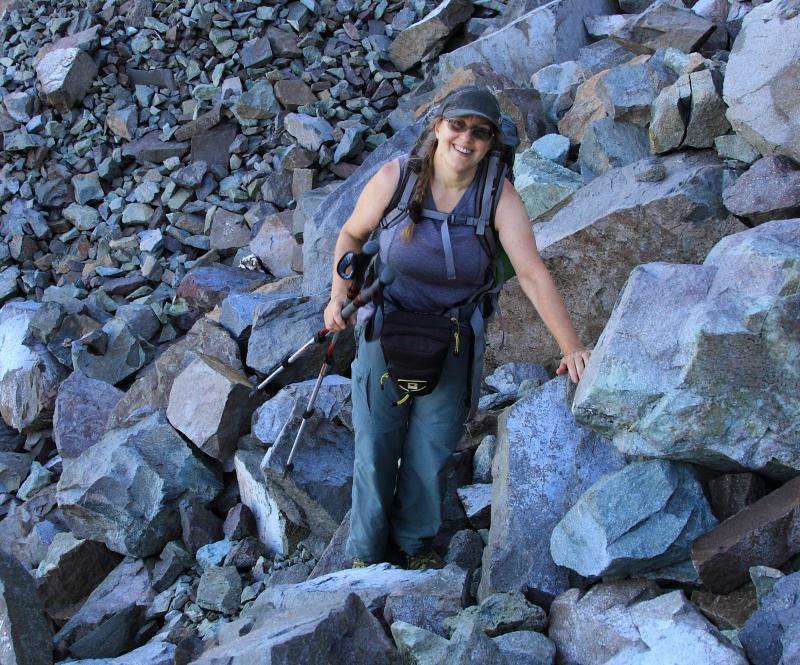 |
